|
Tonight The Sunset Playhouse hosts a free pre-produced fundraiser online. It’s a production of Lucille Flethcher’s 1943 half-hour radio drama Sorry, Wrong Number. It originally aired on a show called Suspense on May 25, 1943. (Suspense was an anthology series that ran on CBS radio from 1942 to 1962.) Agnes Moorehead played the lead. It's a dark, moody psychological horror perfect for the night before Halloween. Orson Welles once referred to it as “the greatest single radio script ever written.” It’s the drama of a single woman alone in her home trying to save the life of a total stranger.
The video for the show is cast in the image of what appears to be an old 415-series wood-cabinet Minerva Radio. The speaker appears on the left side of the screen. Vintage pictures of the 1940s-era appear in the right side of the screen where the boxy radio tuner would normally be. It’s a video, but it plays well as a contemporary replica of a WWII-era radio play. It’s a video, but the show plays really well as an audio-only show as well. The old Minerva is cute, but the real appeal here is listening to local actors perform an old radio script complete with music cues and sound effects and such. It should play really well to a contemporary audience that’s getting more and more used to listening to podcasts. The golden age of audio is returning, so it’s as good a time as any to look at drama from the dawn of broadcasting. Donna Daniels plays the lead Mrs Stevenson. Daniels is engaging as a woman who inadvertently overhears conspiracy to murder on the phone. She immediately calls the operator to get them to trace the call so that they halt the murder, which is scheduled to be at 11:15 p.m. The operator suggests that she call the police and the phone-based audio adventure continues. Daniels is the center of the whol production, but there are a lot of guests making brief appearances. Carrie Gray is particularly appealing in a straight-ahead performance of the warm customer service tones of an information operator who never seems to be of any substantial help. Joan End makes a suitably slow and deliberate performance as a weary-sounding hospital Mrs. Stevenson calls in search of someone to aid her in soothing her nerves. Nicholas Callan Haubner makes a particularly heavy, dramatic, powerfully percussive moment as a mysterious stranger. Sunset Playhouse’s Sorry, Wrong Number is aired tonight, October 30th at 7:30 pm. The program is available for free on Facebook. It’ll be placed on You Tube a little later on. Donations are welcome. For more information, visit.Sunset Playhouse of Facebook.
0 Comments
Staging Shakespeare on the internet has been an interesting challenge for local theatre companies. Zoom, YouTube and Facebook Live and Twitch all have their own issues. It’s painfully difficult to bring across the immediacy of Shakespearian drama and comedy over the internet. Door Shakespeare tackles the challenge with clever retro-whimsy in its virtual production of The Comedy of Errors. Director Michael Stebbins and company have come up with a clever way of embracing the limitations of the internet in a pre-recorded production that’s played like the lost episode of a Door County local access cable show. Cheesy, low-budget very early 1980s cable-access-style video ties together a cast of actors on green screen backdrops complete with the occasional 8-bit-like video game-style animations, silly editing techniques and more. Locations change from domestic settings to various places in and around the Ephesus Shopping Mall. (The climactic scene takes place in a roller rink in the mll.) Scenes are announced via pastel interstitial title cards accompanied by ’80s-style corporate elevator synth-pop music. Though the the heavily-edited one-hour plot may be a bit difficult to follow for those not already familiar with the story, there IS a fun, Shakespearian comedy that rests at the heart of a pleasantly weird pre-produced video package. Duane Boutté carries a smart balance between comedy and dramatic weight as both Antipholus of Syracuse and Antipholus of Ephesus: two guys who have never met before who only happen to be identical twins. Through the magic of low-res, VHS-quality video editing, Charles Frasier matches Boutté’s performance as identical twin Dromios. Frasier is as good in the comic relief roles as Boutté is in the more balanced pair of leads. The cast is remarkably well-balanced from there. Linda Stein wields a canny empathy about her as Adriana--the wife of one Antipholus who is unwittingly confused by both of them. Rayne Kleinofen plays to a deeper compassion as Adriana’s sister Luciana. James Carrington rounds out the cast in a few roles. He’s got a dramatic gravitas about him as the condemned merchant Egeon. He dials-down the intensity with a comic nuance in the role of a courtesan who gets mixed-up in the action. As with its production of Rosalind earlier in the pandemic, Door Shakespeare has once again shown a clever approach to the unique challenges of producing video content for local theatre audiences that is distinct from all of the rest of the fare that’s available over the internet. A sharp cast is edited together in a pleasantly strange and whimsical mutation of a classic comedy. It’s not live theatre in an idyllic outdoor space in Door County, but it’s satisfying in a wholly unique fashion. Door Shakespeare’s virtual production of The Comedy of Errors runs online through November 16. For more information, visit Door Shakespeare online. The Decameron Opera Coalition has assembled a fun, little surprisingly diverse contemporary operatic anthology for video this autumn. Opera groups from all over the country are involved including Milwaukee Opera Theatre. The show is inspired by Giovanni Boccaccio’s The Decameron--a series of short tales told by a group of people who are sheltered from the Black Death of in a small villa outside Florence in the 14th century. Tales from a Safe Distance is an opera that’s packaged like an anthology mini-series on a streaming service like Netflix or Amazon Prime. Each of the stories in every (roughly half-hour) episode of Tales from a Safe Distance is inspired by a different story from The Decameron. Three episodes have been released so far. All of the individual tales fit into the larger framework of a story called “Happy Hour” in which a group of people are telling stories in a videoconference...sheltered as they are from COVID. The series opens as attendees get drinks ready for the videoconference. It’s a casual conversation. There’s something intensely appealing about watching people engage in an operatic adaptation of a casual videoconference between friends that serves as a pleasantly conversational introduction to each of the stories. The supernatural peers into the opening episode. Duluth, Minnesota-based Lyric Opera of the North begins the series with “Everything Comes to a Head.” A woman is accosted by a disembodied voice that reveals itself to be coming from a piece of luggage. The second tale is brought to the screen by New York’s Bare Opera. “The Late Walk” weaves a confrontation between a pair of friends on a walk through a creepy artistically amplified forest background that looks like it's either on green screen or rear projection. The two friends find themselves in an unresolved disagreement that is interrupted by a pair of ghosts. What feels like it could end up being an operatic Tales from the Crypt or Twilight Zone-style anthology series becomes something altogether different in the second episode. Episode Two opens with “Dinner 4 3”: a bedroom farce by Fargo-Moorhead Opera in which both a husband and wife secretly arrange a pair of extramarital affairs via smartphone in bed. This is followed by Washington D.C.’s UrbanArias as it presents “The Roost”: a domestic family drama of an entirely different kind. Milwaukee Opera Theatre’s contribution shows-up at the top of the third episode of the series. The group’s "Orso Ibernata" takes Tales From a Safe Distance into a natural out-of-doors location for the first extended time in the series. It’s a sudden and fantastically natural turn for a series that had spent almost all of its first couple of episodes in artificial lighting. Videographer Christal Wagner has done an absolutely gorgeous job with this one. Elizabeth Blood plays duality on a journey into a beautiful wooded Wisconsin landscape surrounded in a green that had been captured for video just prior to the leaves turning color in recent weeks. It’s a minimalist emotional journey of hauntingly moody simplicity. There’s a piercingly organic feel to MOT’s short, which is bathed in the natural sunlight and shadow in the forest. The other stories in the series thus far have been heavy on narrative and light on atmosphere. True to some of MOT’s strongest work, "Orso Ibernata" beautifully asserts its emotions vividly in song and drama. Houston’s Opera in the Heights follows-up "Orso Ibernata" with something similarly visceral. It's the story of a woman going through emotional turmoil alone in some of the most dazzling lighting to be brought to the series thus far. A single woman is adrift in her own emotions. Minnesota-based An Opera Theatre closes-out the third episode of the series in drama. A victim of domestic violence calls a friend to reach out for help in a particularly dark tale from the Age of COVID which tragically echoes a situation that so many abusive relationships must have been caged into as the outbreak began to run its course in lockdown. Decameron Opera Coalition’s Tales from a Safe Distance debuts its fourth episode debuts this week on October 30th. All previous episodes are still available including Episode Three featuring Milwaukee Opera Theatre’s contribution. For more information, visit Decameron Opera online. Voices Found Repertory enters the Halloween season with the premiere of a new historical horror drama on Twitch. Pharyne Gremore’s They Call Me Dracula is a haunting, little Shakespearian-style political drama based on the life of Vlad Țepeș--the man who served as inspiration for Bram Stoker’s Dracula. The story moves briskly in a taut reading of a new script.
Chase Stante has a rich, hearty voice of a powerful voice actor in the role of the Drunkard that Vlad meets in prison at the beginning of the story. (Stante adds impressive atmosphere around the edges of the staging in a variety of different roles in the course of the drama.) Vlad is in possession of the severed head of his own father. It’s not been a horrifying time for him over the course of the recent past. Dazzlingly dark Maggie Marks conjures a smoldering intensity as the dark hero Vlad Tepes. They call him Dracula. As the drama begins, Marks’ corner of the screen is darkness and shadow. When she tilts her head in the right direction and she practically disappears. As the play opens, the deposed ruler Vlad is being freed from prison so that he may seek his vengeance against his usurper John Hunyadi. Thomas Sebald wields steely intensity as the opening antagonist. There are restless motions cascading about the political intrigue which comes to a head at the infamous Easter feast which serves a a climactic moment which ends the first act. There’s a slow, steady build-up to the single most legendary scene in the life of Vlad. (That Easter dinner is the one thing most people know about him.) Gremore orchestrates the sinister energy of the Easter feast with cleverly increasing intensity. On the other side of intermission, the pacing increases considerably. Any anti-hero-like momentum that Marks materializes onto the screen in the early part of the play plunges into a very, very deep darkness after intermission. Having set-up some of the pathology of one of ancient history’s most infamous mass murderers, Gremore allows him to move into deeper darkness as the drama’s ultra-archvillain. Marks plays uber-villain with a stylish depth. Tethered to a wife he does not love, Vlad is engaged in an extramarital affair with a woman who has the stomach for Vlad’s bloody politics that his wife Ilona lacks. They engage in fantasies of murdering his wife as foreplay as she watches-on from the shadows. This drama mixes with moments of a particularly grizzly sentence is passed on a woman for a similar crime. Caroline Dopson is thrillingly cold as Vlad’s mistress Maria. 90 minutes or so into the drama, Hayley Ebinal is given the opportunity to show the steely passion of an aggressively compassionate and pious woman. One of the sharpest dramatic scenes in the entire drama takes place between Vlad’s wife Ilona and his mistress Maria. If there’s a straight-ahead hero in the drama, it’s her. Ebinal is fairly fearless as the wife of a monster who is trying to understand him. The whole thing plays very much like a Macbeth or Hamlet might have done had either of the title characters been a bloodthirsty, slickly inhuman monster. By the time it reaches its end, the drama lacks the clever architecture of Shakespeare’s most loved works. Aside from the occasional slow patch in the dramatic rhythm of the script, the overall momentum of the story maintains for a couple of hours. Though it feels a bit ponderous at 2.5 hours, the play has more than enough moments to carry the evening. Gremore cleverly inserts vampiric references throughout the script. They’re paying homage to the legend of Dracula, but they’re also suggesting that the first vampire might have come about when a single person was driven to absurd extremes due to an earthbound psychological pathology. This is a clever new twist on vampire lore: it’s not magic. It’s just what happens when people suffer enough injustice to truly become monsters. They Call Me Dracula has two more performances: Saturday Oct. 23rd at 7:00 pm and Saturday, Oct. 31st at 10:00 pm on Twitch. For more information, visit the show’s Facebook events page. This coming weekend finds screens from local stages filled with an infamous 15th century Romanian ruler, a teenaged girl who is a 20th level paladin, a bugbear, Tiamat and a gelatinous cube. Beyond that there are others shows at month’s end and beyond. Here’s a look: I love the authenticity of teenagers playing teenagers. It’s really difficult for an adult actor to get the specific nuances of teendom into a performance. This coming weekend Homestead High School presents an online production of a show about a girl in high school that’s being streamed live on Facebook. What’s even cooler: the show in question is She Kills Monsters. An adult woman wants to know more about a distant sister who passed away in a car crash in high school. She falls into an adventure module her sister had written for Dungeons and Dragons when she was 15 and begins to learn about her through the fantasy of the role-playing game. Homestead High School’s She Kills Monsters runs October 23, 24 and 25. Shows start at 7pm. For more information, visit the show’s Facebook page. Voices Found Repertory opens its premier virtual production of Pharyne Gremore’s They Call Me Dracula this coming weekend. VFR has released a bit more information about the show since it was initially announced. It’s actually not an adaptation of any permutation of Bram Stoker’s classic. Rather than focus on what Anne Rice referred to as “the vulgar fictions of a demented Irishman," Gremore’s script tells the tale of the very real historical figure Stoker used for inspiration: Vlad Tepes...also known as Vlad the Impaler. The really cool thing about this production? Vlad is played Maggie Marks. Marks is a very, very cool actress. (She’s done some notable work around the edges of an ensemble or two with Bard & Bourbon in recent memory.) Here she has a chance to do it as the impaler onscreen. They Call Me Dracula runs October 23, 24 and 31 on Twitch. For more information, visit the show’s Facebook Page. WoLF Studios MKE hosts its monthly mix of dance and spoken word live and online near month’s end as it presented ReVibe: A Movement Experience. It’s designed to give a platform for black, indigenous and other people of color the blends a mix of curated and open call artists. It’s also one of the first locally-grown events to be featured simultaneously live and online. The next performance takes place Saturday, October 24 from 7 – 8:30 p.m. Live and in-person, the show is $10 at Nō Studios on 1037 W McKinley Avenue. The show is also being streamed online for $5. For more information, visit the show’s Facebook events page. Boozy Bard presents its second and final Macbeth Raw(ish) near month’s end. Roles are chosen at random and read by actors on Facebook Live. One never knows quite what to expect with a Boozy Bard production. The show takes place on Wednesday, Oct. 28th. Boozy Bard’s Jeremy Eineichner will open the show with his characteristic warmth and wit at 7:00 pm. For more information, visit the show’s Facebook page. Terrifying Tales for All Hallow's Eve Video in the Age of COVID meets Halloween as a group of talented local performers gather around the glow of the internet for an evening of stories. Mandi Veeder, Sammi Ditloff, Kelsey Lexow, Nicole Allee, and Andrea Roedel-Schroeder tell stories in a pair of online videos which go live on October 31st at 8:00 pm. For more information, visit the show’s Facebook page. First Stage continues its online offerings for kids this coming month with a one-woman show written by playwright Eric Coble. The Girl Who Swallowed a Cactus (In Your Home) School is out. Sheila and her friends head off to an adventure in the desert accompanied by a well-dressed wolf. It’s a big adventure with a large cast in a world of magical realism. It’s going to be a big challenge for any actress. Who better the tackle a challenge like this than First Stage’s Karen Estrada? Estrada has a pleasantly intense energy about her that craftily draws attention in a wide range of different moods. The promo video for the show has Estrada relating it from a lovingly cluttered craft table. This is exceedingly clever staging. Some of the most successful YouTube fare for kids involved craft-based vloggers working on projects. A brilliant actress mixes crafts with story for kids ages 7-15+. The Girl Who Swallowed a Cactus (In Your Home) runs Nov. 2 -22. For more information, visit First Stage Online. Next Act Theatre opens its doors to live audiences this coming November with the Wisconsin premiere of Lucas Hnath’s The Christians. Director Ed Morgan helms a cast of five including Next Act’s David Cecsarini. Questions of U.S. Christianity are explored in the setting of a megachurch. A pastor begins to wonder if there might not be some merit in having a more inclusive church. It’s a premise that might have been a bit more radical if it had been debuted in an era prior to a progressive pope like Francis, but the story maintains resonance in a nation that still fosters sinister, Christian millionaire mega-faces like Pat Robertson and Joel Osteen.
Next Act’s production of The Christians runs Nov. 23 - Dec. 13. For more information, visit Next Act online. People gather around in the chill of the late October night along the river. The pre-show murmur of theatergoers mixes with the distant sound of traffic. Everyone has gathered in masked, socially distant, little clusters for Enchanted Park(ing Lot): an outdoor collaboration between Danceworks and Milwaukee Opera Theater. The parking lot outside of Danceworks has been marked-off with chalk so that each patron has his or her own space. We’re all parked in folding chairs...each in our own parking spot. It’s a pleasant feeling to be in the company of strangers before a show after a long absence of live performance. Lights moodily illuminate the riverside parking lot. A group of dancers emerge in blacks and whites. All dancers wear masks. It’s an intimate, little space. The eyes of the dancers gain considerable intensity with the rest of the face covered-up. There’s an amplification of mystery in the dramas being played-out between. dancers. They’re bathed in blue light as the show begins. It’s music from the 19th century. Eight pieces glide out into the parking lot in a variety of different forms including the animating resonance of electric violin and the strangely ethereal sound of crystal wine goblets. Operatic sounds mix with the rattle of bikes and the gentle respirations and percussions of joggers and dog walkers along the Milwaukee River. The delicate lights illuminating the dancers are occasionally accompanied by lights from cars exiting parking garages. A particularly passionate moment between a man and a woman struggling with each other from a distance is punctuated by the sound of a siren in the evening chill. A young, friendly illuminated tree on the riverwalk oversees the action on synthesizer and wine goblets. Danceworks' Artistic Director Dani Kuepper and MOT Artistic Director Jill Anna Ponasik put together something remarkably organic here. It’s beautiful and graceful in a way that doesn’t seem at all out of place in a parking lot along the Milwaukee River in Autumn. This is a hell of an accomplishment. NOTHING is natural in a parking lot. PARKING isn’t natural in a parking lot and yet Kuepper and Ponasik have put something together to fit the crisp open air of an evening in Milwaukee that feels so natural as to be inevitable. It’s Danceworks’ parking lot. It only makes sense that people would casually hang out and collaborate in dance and music on a casual evening. From dancers to music to light dancing on the gently flowing river, it all feels like it needs. to be exactly where it is. It is truly strange to have people performing dance and 19th century songs on folding chairs in a parking lot at night. There’s no reason it should feel natural. Kuepper and Ponasik find just the right elements from simple costuming to moody lighting and atmospheric music. It all comes together beautifully. Enchanted Park(ing Lot) continues with two performances per night Friday the 16th and Saturday the 17th of October. Performances are at 7:00 and 8:00 pm. For more information, visit Milwaukee Opera Theater online. In addition to everything else it has going for it, First Stage has shown a remarkably savvy understanding of its audience. At first glance, the idea of doing a weekly pay-to-access video series for kids seems a bit optimistic. Kids with access to the internet already have so much that is available to them free of charge. Huge online packages from major corporations like Disney and Amazon are openly available with endless options of all kinds of kids' shows from classic movies to relatively new stuff. True: there IS an appeal of dazzlingly high-end children’s theatre live in the intimate confines of a small theatre down town. A pre-packaged video serial would seem to lie solidly outside of First Stage’s unique set of strengths, though. There’s simply way too much else to distract kids online. As a father and a theatre critic, I was skeptical. Much to my surprise, my two very sophisticated, little grade school daughters loved the first episode, which debuted this past Sunday. Writer John Maclay and director Jeremy Tardy cleverly tackle the challenge of putting together a story with a unique appeal to local kids. The story follows a group of students languishing in lockdown who are drawn to an old bit of text from a fictitious Milwaukee-based sci-fi author who had claimed to have access to a secret treasure hidden from the world by Milwaukee founding father Solomon Juneau. Actors shot scenes in isolation in front of a green screen at Milwaukee Youth Arts Center. The opening episode has them largely interacting with each other via videoconferencing, so the isolation of single actors working individually in front of cameras fits the script quite well. Lina Singh is charmingly engaging as Frannie--a girl who has just moved into a new place only to run into a bit of text with clues suggesting the location of a hidden treasure. She makes video call to her friend Alina to tell her about it. The first 1/3 of the first episode is a dialogue between Singh as Frannie and Lucia Santana as Alina. The bright, cheery green screen backgrounds firmly set Alina and Frannie into two different settings that lend the first episode a clean, simply visual dynamic. What could have come across as a pretty dull set-up to the basic plot is more than interesting enough to hold the attention of a couple of grade schoolers...particularly when more kids become involved on a videoconference to begin the quest. Kids DO have access to a lot of video fare online, but not many of them speak to what grade school kids are going through right now. The video series may not have the immediacy of a live performance, but Maclay has found a way to bring some of the feeling of immediacy to the Milwaukee-area kids who would normally be going to a First Stage show. With classes in MPS and elsewhere taking place over the internet, grade schoolers in a pandemic are presented with characters who are going through exactly what they’re going through in the same city they’re living in. The text that Frannie reads the rest of the kids is presented at the end of the first episode. Just before the closing credits roll, the text with mysterious, riddle-based references to Milwaukee history asserts itself in cool yellow sans-serifs against a black background. Kids with enough interest could really dive into this on their own as the series progresses. With local historian John Gurda included as a consultant on the series, the local history angle on the series could serve as a really solid foundation for a fun, little Milwaukee-based mystery. First Stage’s The Quest for Solomon’s Treasure continues to be released at a rate of one episode per week through November 15. All episodes will be available through May. |
Russ BickerstaffArchives
July 2024
Categories |
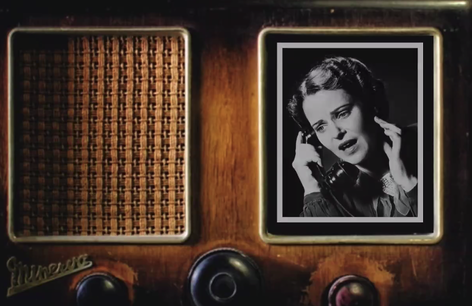

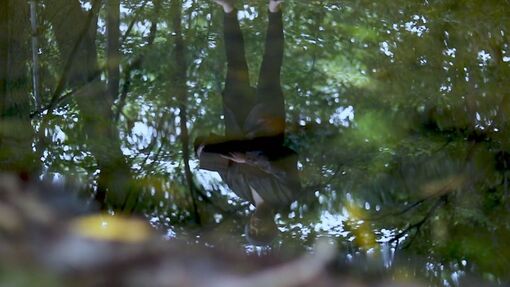


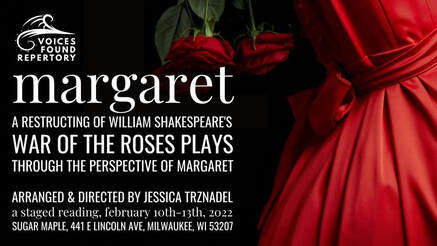


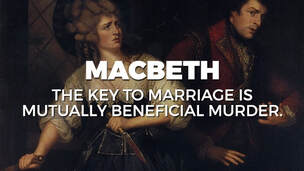
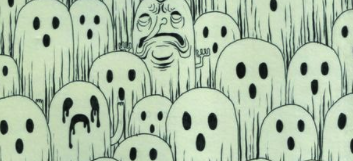

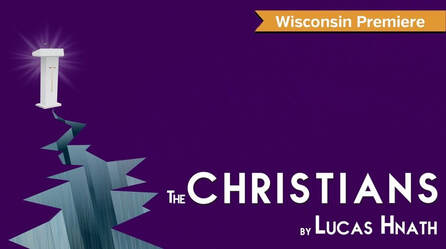
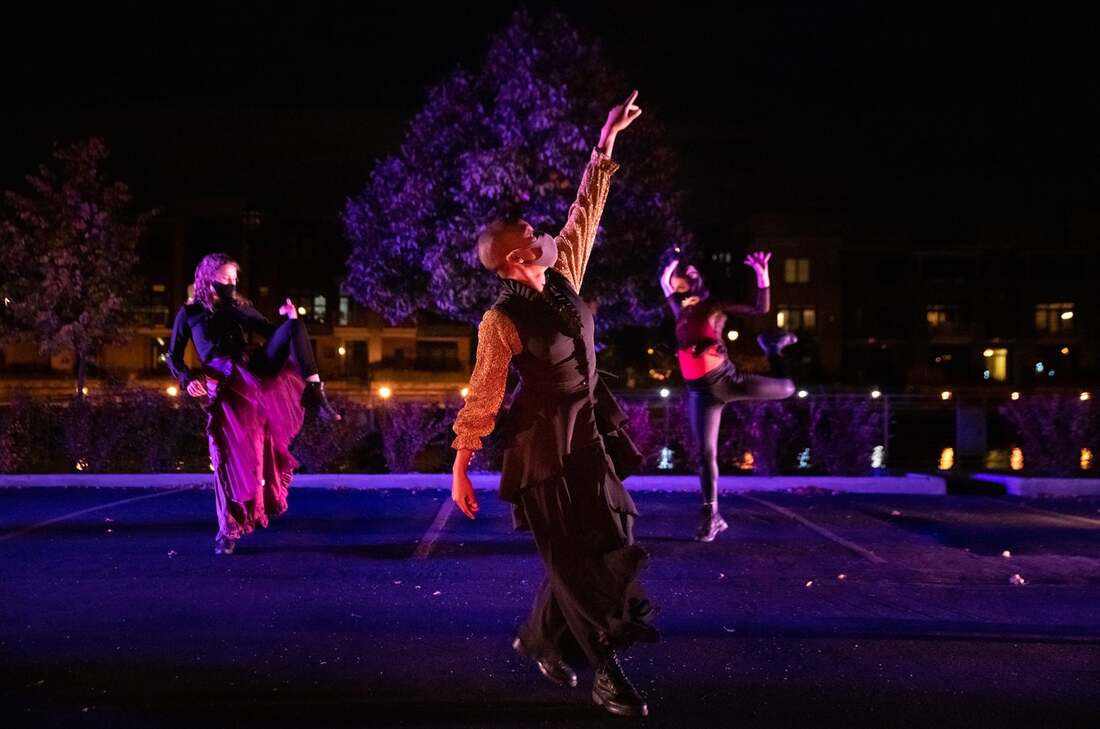
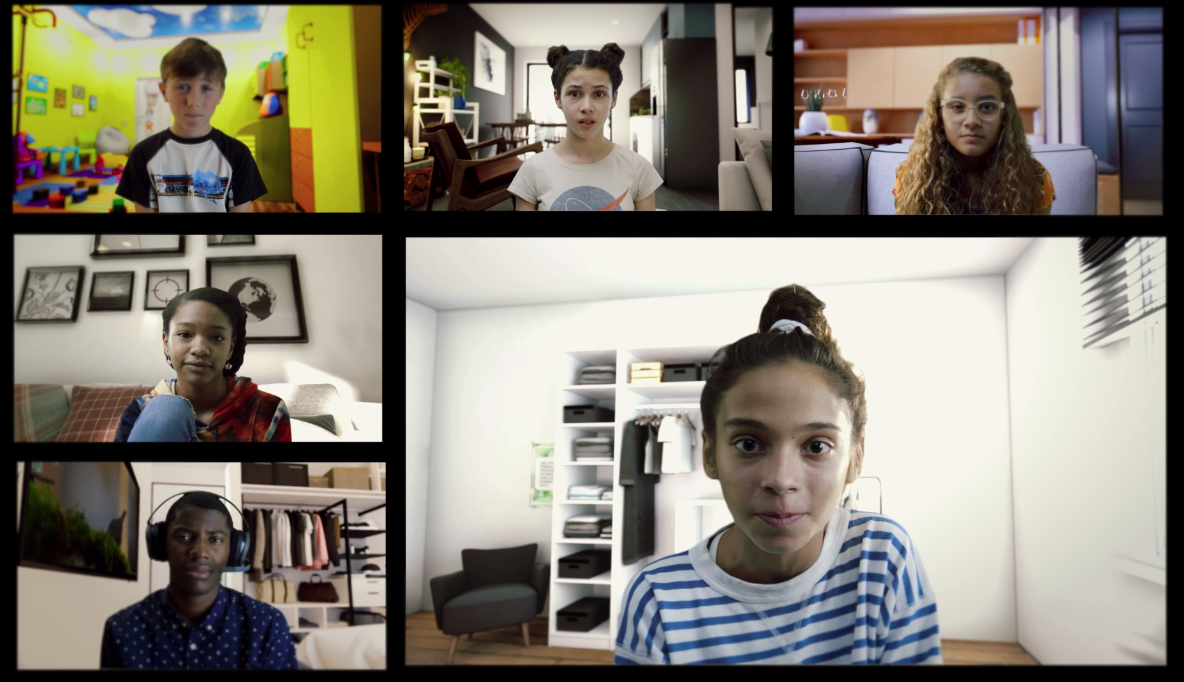
 RSS Feed
RSS Feed
